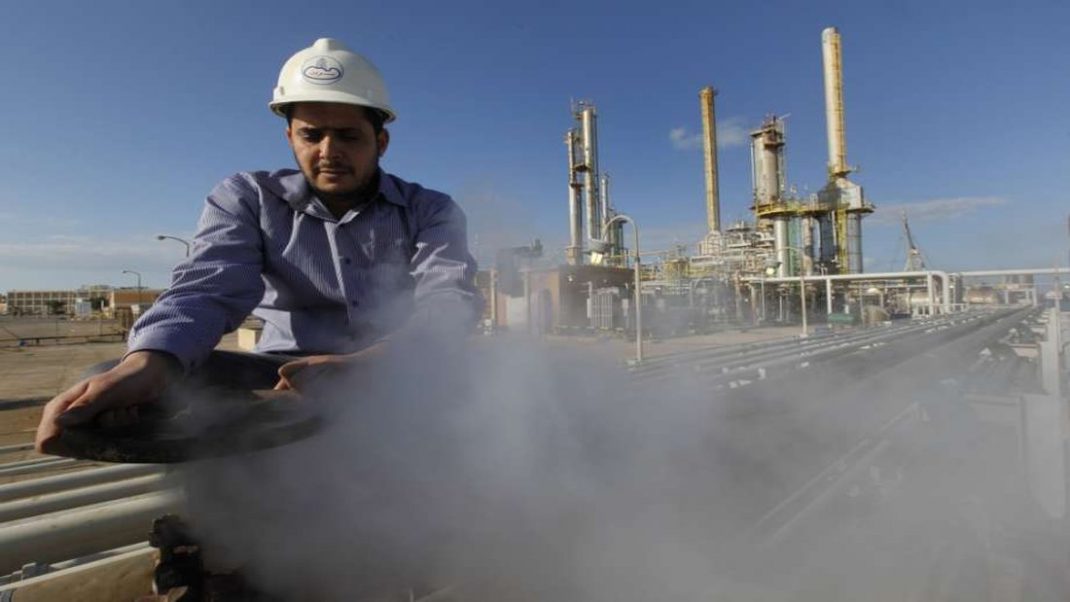Salma El Wardany

- Libya’s crude production is rising after deal to restart oil.
- Oil production has halved since mid-April on protests.
Libya boosted oil production to more than 1 million barrels a day, a milestone for the North African country where output had more than halved since mid-April.
The OPEC member, home to Africa’s largest crude reserves, ramped up its production to a “little over” a million barrels a day, Oil Minister Mohamed Oun said. The increase follows an agreement with protesters and tribal heads reached more than a week ago to reopen fields and export terminals that had been largely shut since mid-April. Before the restart, production was down to 560,000 barrels a day.
Libya has seen production plummet by about 50% in recent months due to a power struggle between rival governments, while chronic underinvestment in infrastructure also curtailed output. Higher Libyan production could offer some relief for undersupplied oil markets and high prices that have stoked inflation across the globe.
Part of the deal to reopen oil was the government’s move on July 14 to overhaul the board of the state oil firm National Oil Corp. and the appointment of Farhat Bengdara as head of the group. He replaced Mustafa Sanalla, who had frequently been at odds with the oil ministry that was reinstated by the Tripoli-based government. Bengadara vowed to ramp up production quickly to its normal levels of 1.2-1.3 million barrels a day soon.
Libya’s energy facilities have been at the heart of the North African nation’s conflicts over the past decade, with various groups shutting down oil output to press their political and economic demands.
The nation has been mired in conflict since the fall of dictator Moammar Al Qaddafi in 2011. It’s now facing a standoff between two politicians — Abdul Hamid Dbeibah in the west and Fathi Bashagha in the east– who each claim to be the legitimate prime minister. The recent closures in mid-April were linked to politics with some protests at ports and fields demanding the transfer of power to Bashagha, the fair distribution of oil revenues and the dismissal of Sanalla.
…

************
NOC restores some production, but violence is climbing
Ed Reed
 The new head of Libya’s National Oil Corp. (NOC) has overseen the relaunch of gas production at Al Faregh and new talks with Waha Oil, paving the way for more production.
The new head of Libya’s National Oil Corp. (NOC) has overseen the relaunch of gas production at Al Faregh and new talks with Waha Oil, paving the way for more production.
The new head of Libya’s National Oil Corp. (NOC) has overseen the relaunch of gas production at Al Faregh and new talks with Waha Oil, paving the way for more production.
In mid-July, Libya was producing around 560,000 barrels per day, NOC said. It is currently at 860,000 bpd and with the target of reaching 1.2 million bpd within two weeks.
The Tripoli-based government installed Farhat Bengdara as the new chairman of NOC earlier this month, replacing stalwart Mustafa Sanalla.
Bengdara has seen some early successes following his appointment.
On July 23, Faregh – Libya’s largest gas field – began producing to the Sarir power plant. The field is operated by Waha Oil, around 60 km southwest of the Jalu field.
NOC said starting up Faregh would reduce power outages.
General Electricity Company of Libya (GECOL) welcomed the restart on July 23. It said the North Benghazi and Zueitina power plants were due to start up on July 24.
Bengdara and other members of the NOC board held talks with Waha Oil on July 24. The chairman said the aim of the discussions was to identify the difficulties the company faces and to find ways to solve them.
The same day, the board also held talks with the management of the Arabian Gulf Oil Co. (Agoco). Again, the NOC statement said it aimed to support the operating company in maintaining and increasing production.
El Feel restarted production on July 19 at a rate of 40,000 bpd, in the country’s southwest. NOC said it was ramping up to 70,000 bpd.
While there have been clear improvements in Libya’s energy industry, the country continues to look unstable.
Locals invaded the Tobruk parliament late last week. This was partly in response to economic struggles, including a shortage of electricity. Tripoli also suffered, with militias clashing and the airport putting flights on hold owing to the violence.
The eastern backed Fathi Bashagha has seemingly raised the possibility of seeking to take control of Tripoli again, following an earlier unsuccessful attempt. He is seeking the removal of Prime Minister Abdul Hamid Dbeibeh.
Fighting broke out over the weekend in Misrata. US Ambassador Richard Norland called for political actors and their supporters “to stand down in order to avoid escalation and further loss of life”.
Bashagha, meanwhile, blamed the violence on “an outlawed government”.
________________





